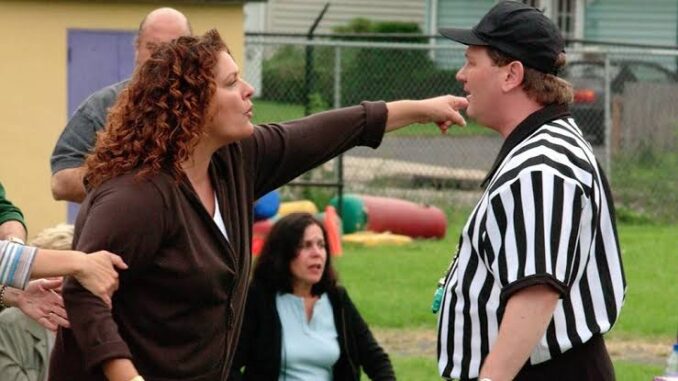
Two Georgia fastpitch Softball parents sue coach and referee for punishing their kids for disobeying the rules and regulations of the organization.
**Two Georgia Fastpitch Softball Parents Sue Coach and Referee for Punishing Their Kids for Disobeying Rules**
In recent developments within the youth sports community in Georgia, a legal dispute has emerged involving two parents of young fastpitch softball players who have filed a lawsuit against a coach and a referee. The parents allege that their children were unfairly punished for allegedly disobeying the organization’s rules and regulations, raising questions about the fairness, authority, and conduct of adult officials in youth sports.
The incident reportedly took place during a regional tournament held in Georgia, where tensions flared between players, coaches, referees, and spectators. According to court documents and statements from the parents, their children, who are minors, were penalized with benching and disciplinary measures that the parents believe were unjustified and excessively harsh. The parents assert that the coach and referee’s actions went beyond standard disciplinary procedures and infringed upon the rights of their children.
Legal experts indicate that the lawsuit revolves around allegations of misconduct, abuse of authority, and possibly emotional distress caused by the punishments. The parents contend that the coach and referee acted outside the scope of their responsibilities, perhaps demonstrating bias or improper conduct, leading to unfair treatment of the young athletes. They are seeking damages for emotional distress, as well as changes in how disciplinary actions are handled in the organization.
This case underscores the delicate balance of authority and fairness in youth sports. Coaches and referees are entrusted with maintaining order, enforcing rules, and ensuring a positive environment for young athletes. However, their actions are expected to be within the bounds of professionalism and fairness. When disputes arise, especially involving minors, it becomes crucial to evaluate whether procedures were followed properly and whether the punishment was proportionate to the alleged infraction.
Critics of the incident argue that youth sports should serve as a platform for teaching discipline, teamwork, and respect. Excessive or unjust punishments can have lasting negative effects on young athletes’ self-esteem and love for the game. On the other hand, defenders of the coach and referee may claim that disciplinary measures are necessary to uphold the integrity of the sport and to prevent unruly behavior on the field.
The lawsuit has sparked a wider conversation about oversight and accountability in youth sports leagues. Many organizations are reviewing their policies to ensure that disciplinary actions are transparent, consistent, and appropriate. Some advocate for better training for officials and coaches to handle conflicts effectively without resorting to punitive measures that could be perceived as unfair or retaliatory.
This incident also highlights the importance of communication between parents, coaches, and officials. When disagreements occur, it’s vital for all parties to engage constructively to resolve issues without resorting to legal action. Nonetheless, this case may serve as a precedent or catalyst for reform within youth sports organizations in Georgia and beyond, emphasizing the need for clear guidelines and fair treatment of young athletes.
In conclusion, the lawsuit filed by the two Georgia parents against the coach and referee reflects ongoing concerns about fairness, authority, and the well-being of minors in youth sports. As the case progresses, it could lead to important discussions and reforms aimed at safeguarding the rights of young athletes while maintaining the integrity of competitive sports.
Leave a Reply